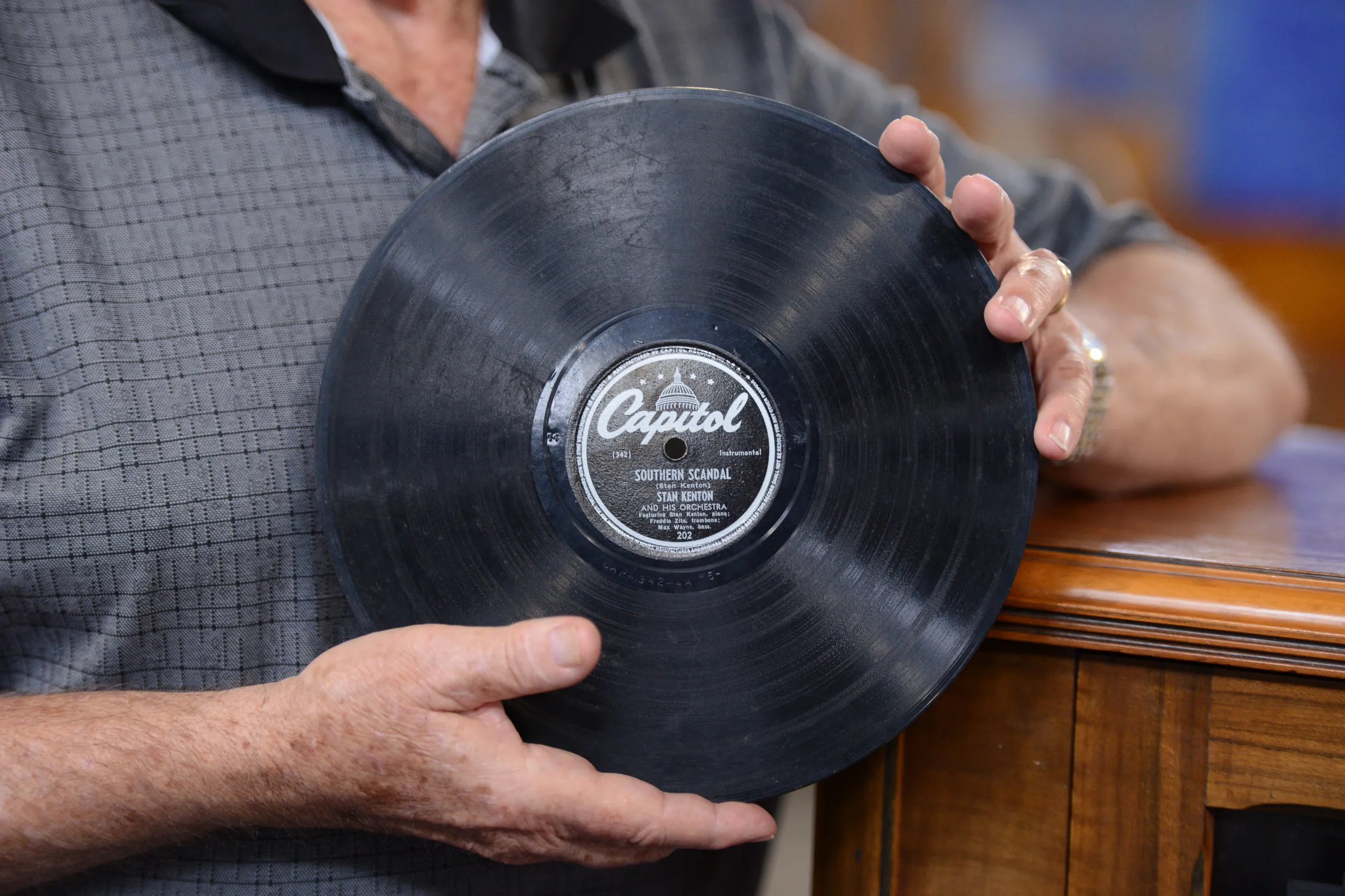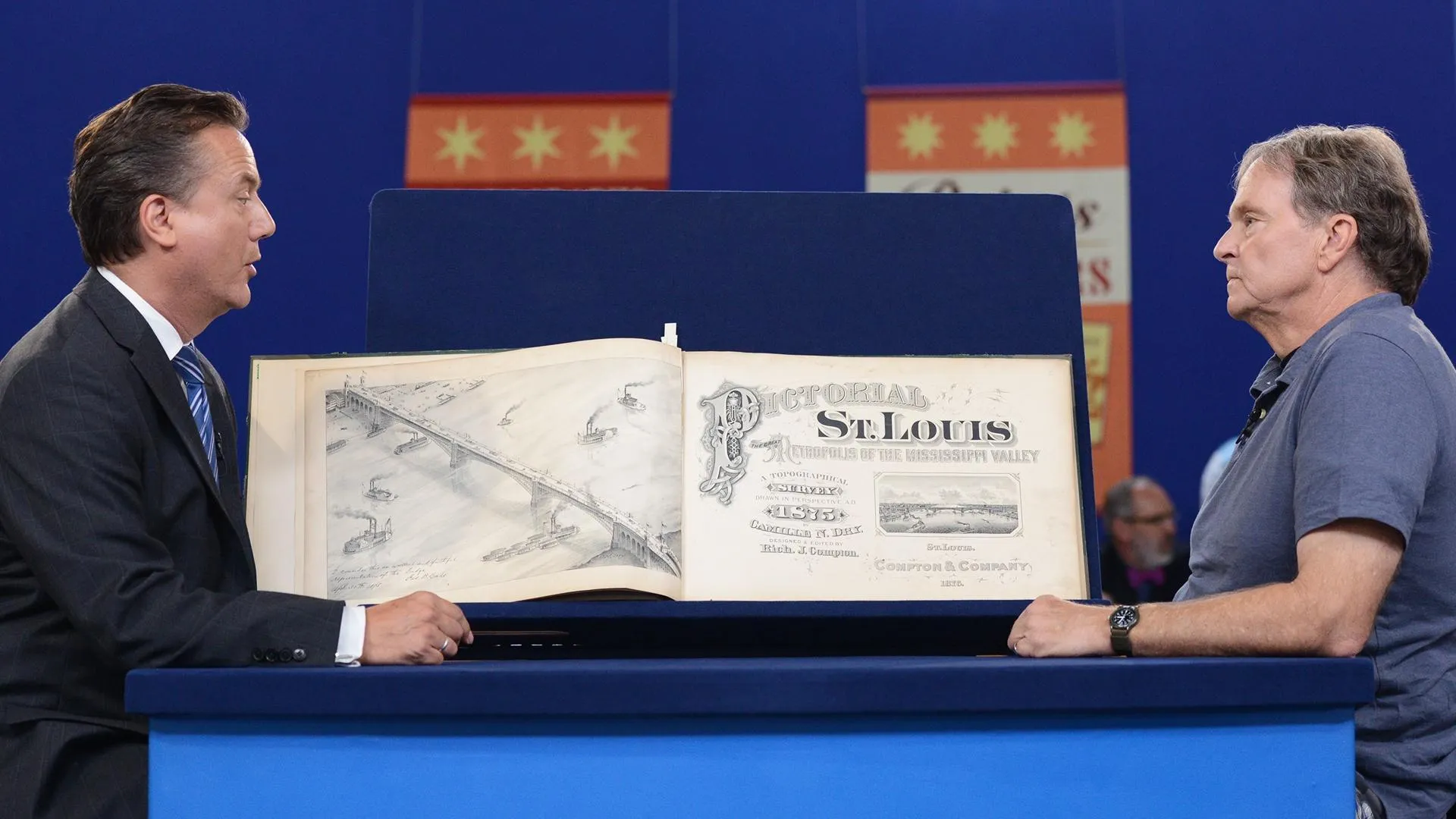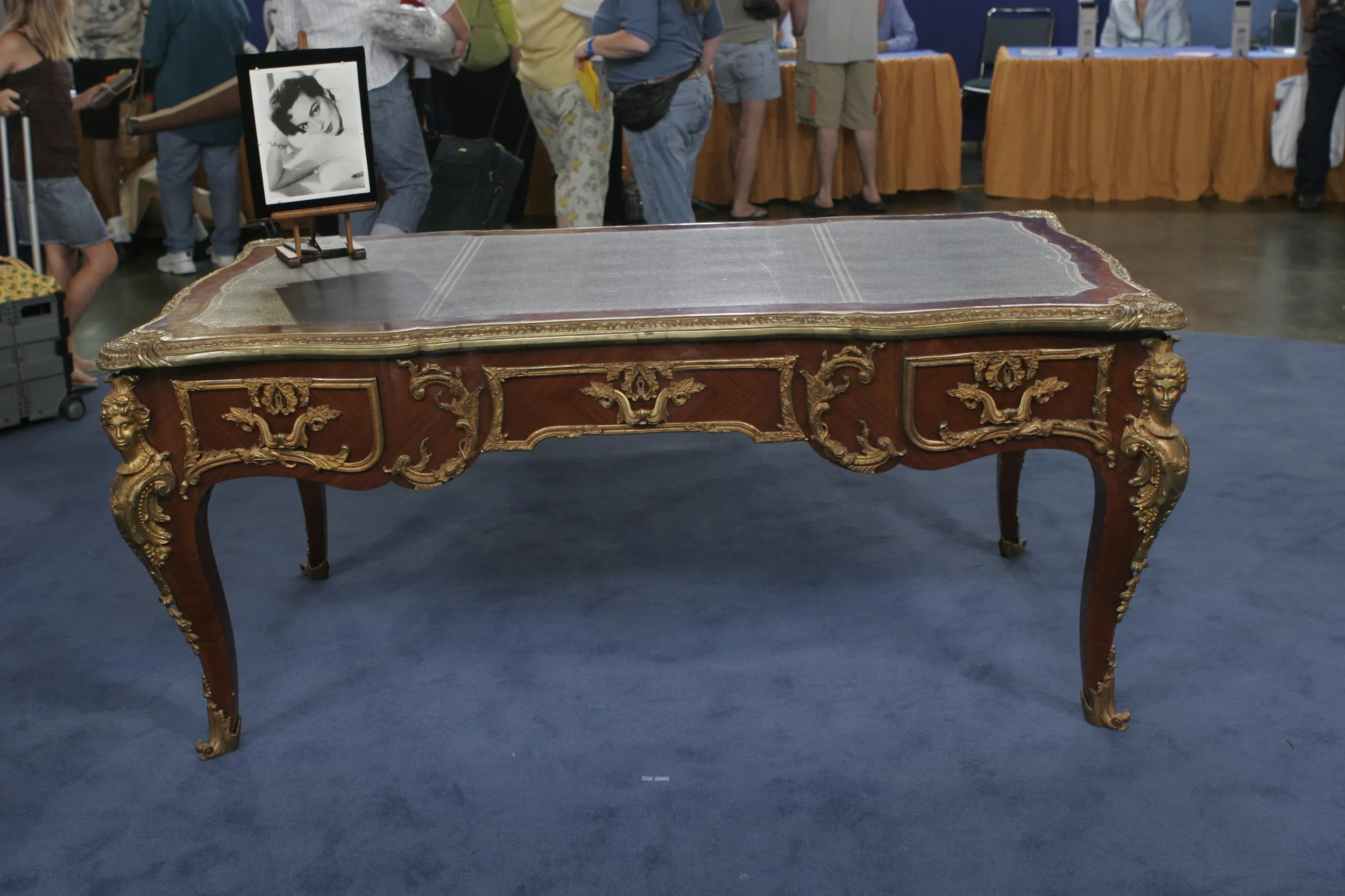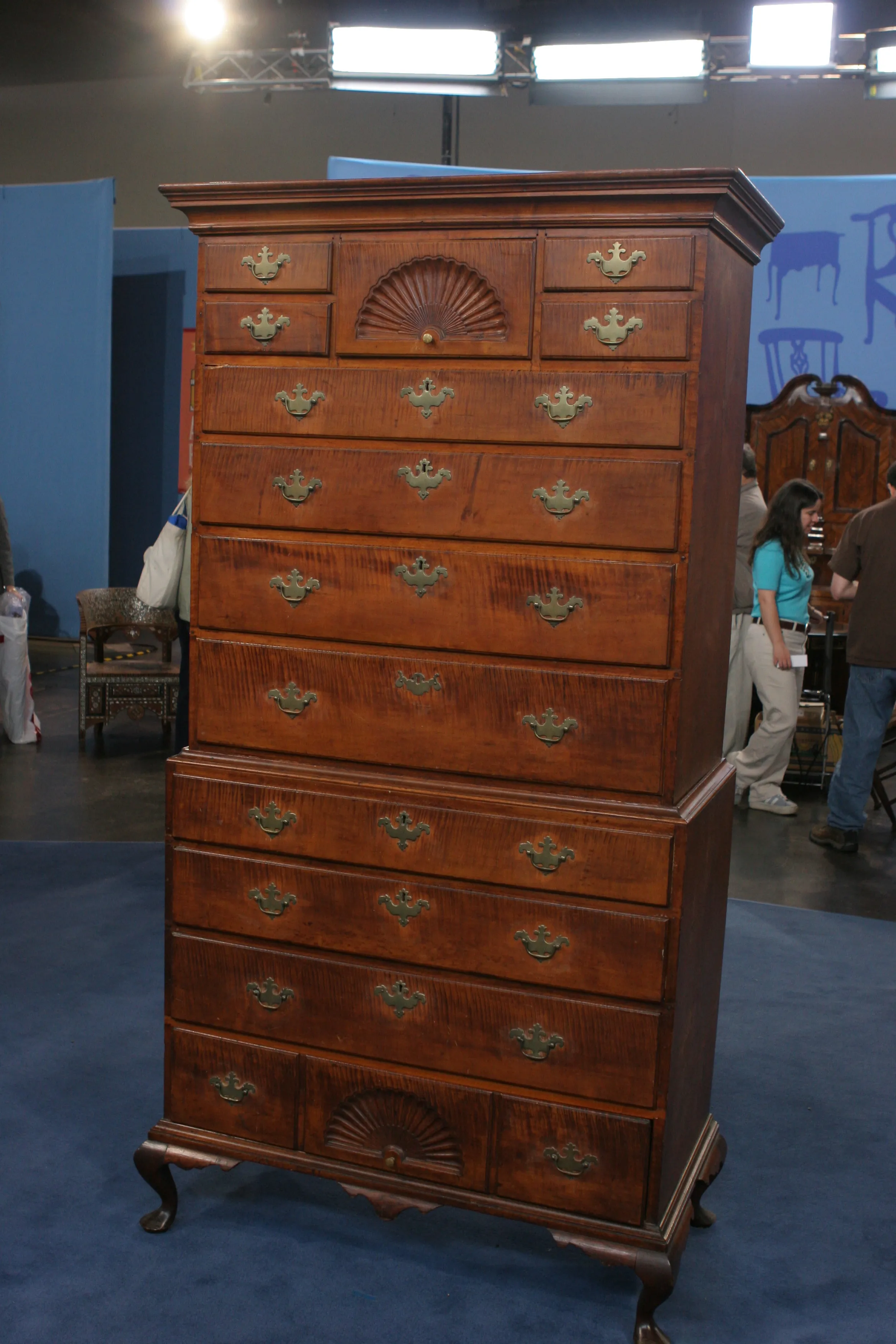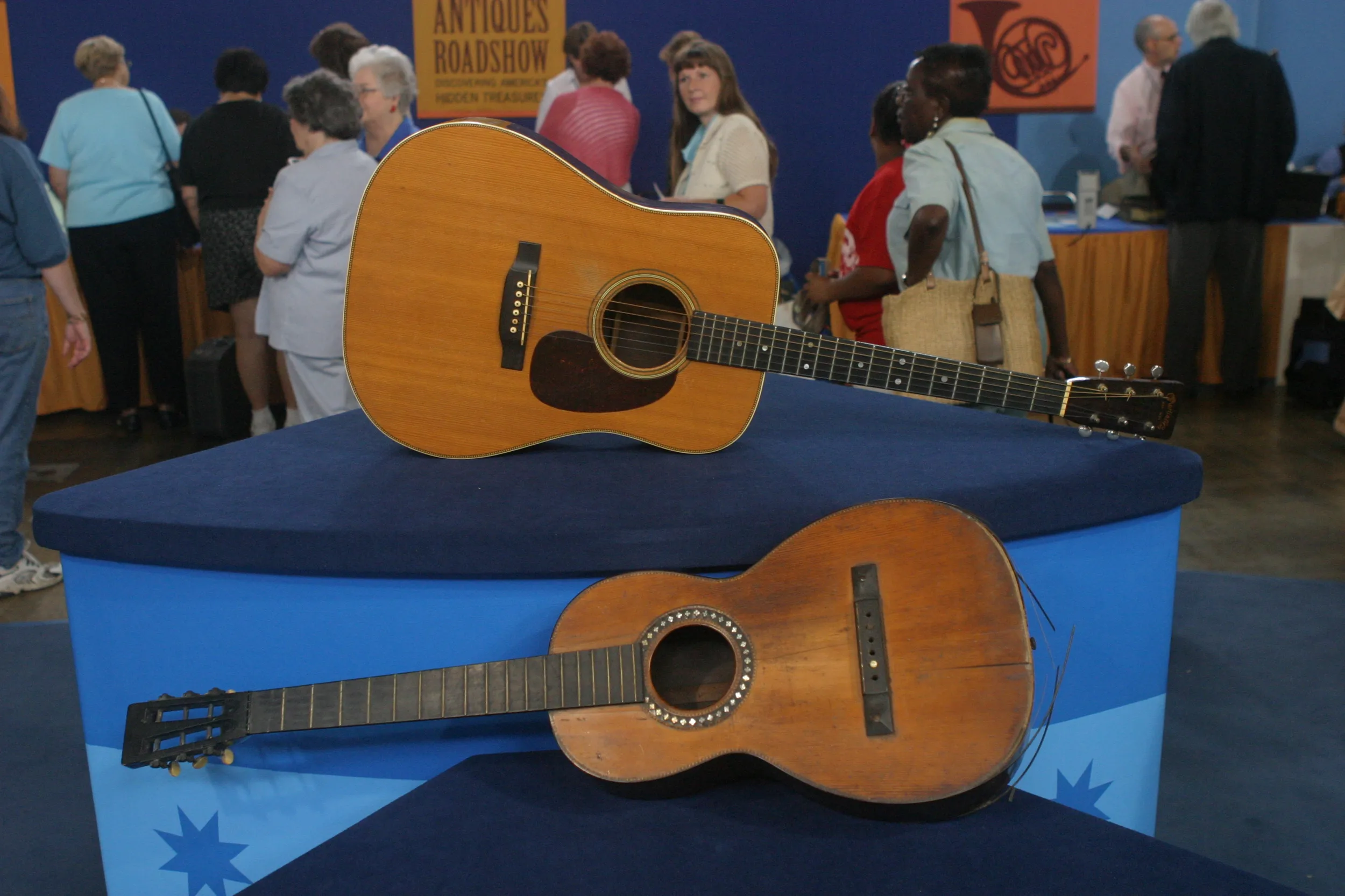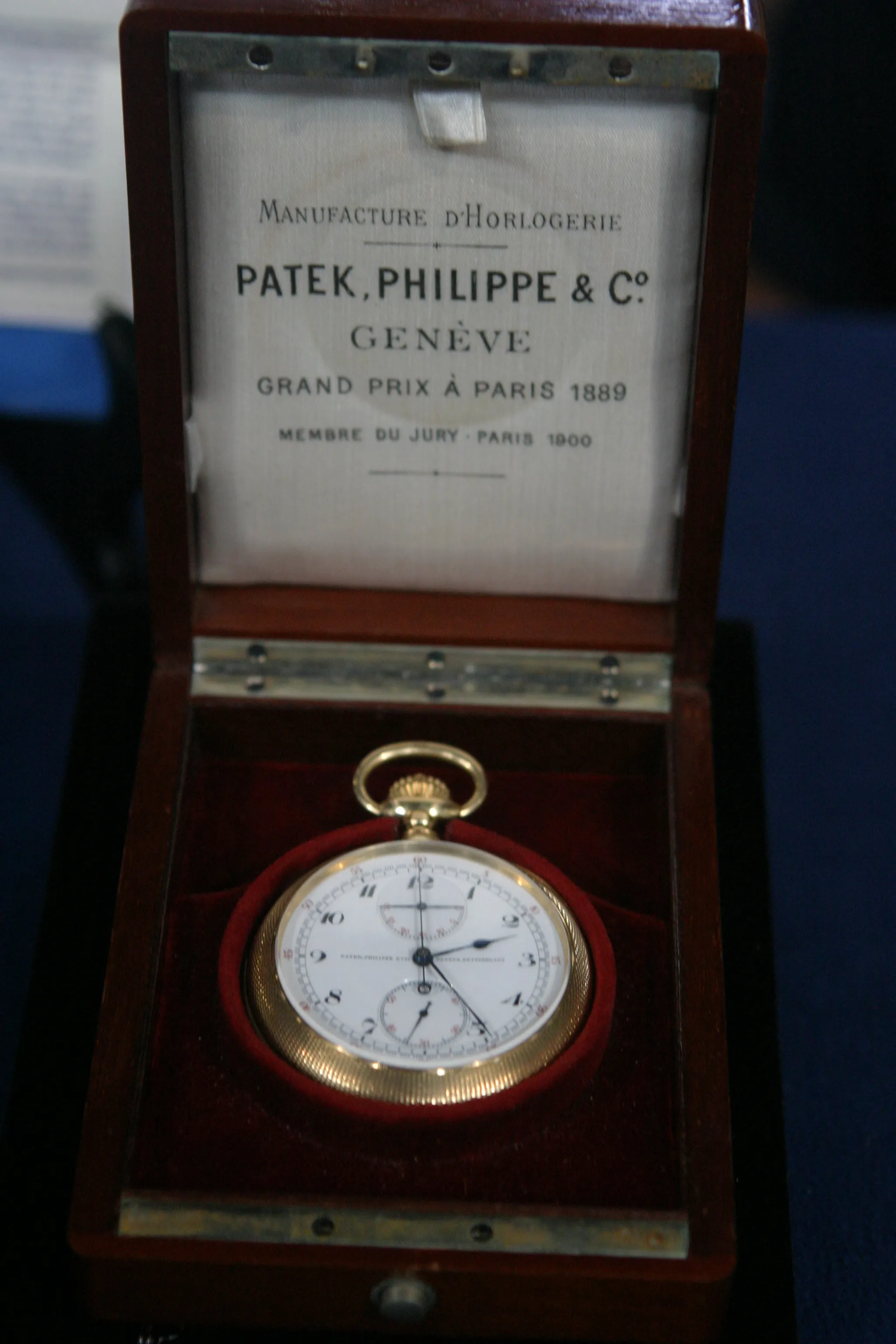GUEST: This is a 1934 Wurlitzer jukebox. In 1976, my wife went to an auction in Meade, Kansas, and it was one of these buildings where, as they changed businesses, everything got moved to the back and this was in the back of it. And so they decided to clean it out and it went up for auction. She paid $75 for it. She gave it to me for my Father's Day present.
APPRAISER: Wow, pretty nice gift. So it is a Wurlitzer model P10, manufactured in 1934, and it plays 78. It's made in a walnut case in an Art Deco style and it's coin-operated. When we take a look at the back here, we can see that there's a metal tag that gives us a lot of information regarding this machine—the serial number, and there was what, about 4,000 of these, I think, produced.
GUEST: Somewhere between 4,000, 4,500, somewhere in there.
APPRAISER: Yeah. And the complexity of this machine is really amazing, isn't it?
Guest: It is.
APPRAISER: When we take the back door off, we can take a glimpse at this and just see how truly complex this really is. And amazing condition. When your wife acquired this, it was probably from the original location in which it sat, wouldn't you think?
GUEST: It was, yes.
APPRAISER: I think one of the things that's always interesting to me not only about an object, but how does an object fit into context in American history? And when we think a 1934 jukebox, we think a year after Prohibition, the Depression. It's really an escape. Music was a gift that enabled people to forget their troubles.
GUEST: Yes, it was.
APPPRAISER: I think you've got an exceptional condition model. At auction we would estimate it at $1,200 to $1,800.
GUEST: Okay. Very good.
APPRAISER: Shall we play it for everybody?
GUEST: Sure. All right. (band music playing)

